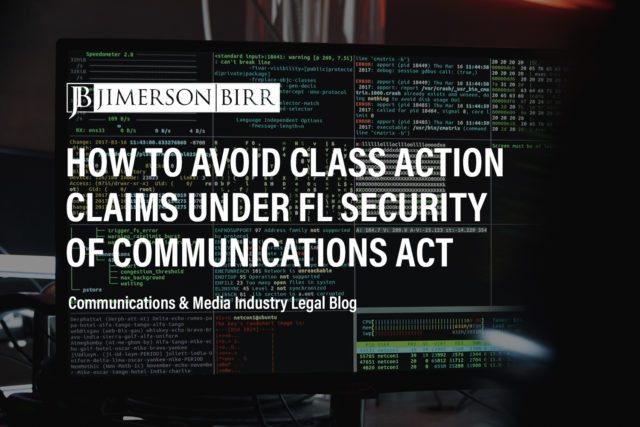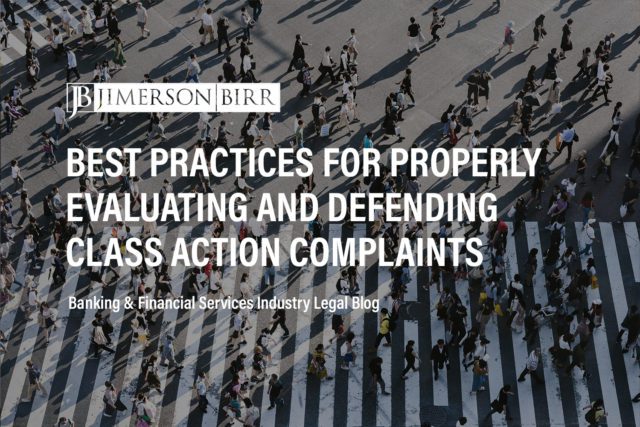What does proactively defeating class actions entail?
Seeking early summary judgment, detailed, carefully targeted investigation, and focused eDiscovery involves strategically dismantling the opposing party’s claims and defenses before trial. In the context of class action litigation defense in Florida, these strategies entail thoroughly examining the facts, evidence, and legal arguments to prevent class certification and resolve the matter expeditiously and cost-effectively.
Consider the results of the following examples:
- In consumer class action lawsuits, Florida defendants have commonly used eDiscovery to uncover inconsistencies in the plaintiffs’ claims and demonstrate a lack of commonality among class members. This strategy has resulted in the court denying class certification, ultimately leading to a favorable settlement for the defendants.
- In many federal class actions involving alleged securities fraud, defendants have sought early summary judgment after conducting meticulous investigations revealing the plaintiffs’ failure to establish a causal connection between the alleged misrepresentations and their losses. Consequently, the courts have granted summary judgment in favor of the defendants, dismissing the cases without a trial.
Need help with the discovery phase of a class action lawsuit? Schedule your consultation today with a top class action defense attorney.
In Florida, which laws and regulations apply to summary judgment, detailed investigation, and eDiscovery in the early stages of class action defense litigation?
In Florida, several laws and regulations guide seeking early summary judgment and proactively defeating class certification through detailed, carefully targeted investigation and focused eDiscovery in class action litigation defense matters:
- Florida Rule of Civil Procedure 1.510, which governs summary judgment, allows parties to seek resolution of claims or defenses without a trial if there is no genuine issue of material fact and the moving party is entitled to judgment as a matter of law.
- Florida Rule of Civil Procedure 1.220, which sets forth the requirements for class action certification, requires that a proposed class satisfy numerosity, commonality, typicality, and adequacy of representation. Defendants can challenge class certification by showing that the proposed class does not meet these criteria.
- Federal Rule of Civil Procedure 23, which applies in federal cases, similarly governs class action certification and provides additional grounds for challenging certification, such as predominance and superiority.
- The Federal Rules of Civil Procedure and corresponding Florida Rules of Civil Procedure also establish guidelines for eDiscovery, which can be a crucial tool for investigating and challenging class certification or seeking early summary judgment. Critical rules include FRCP 26(b)(1) and Florida Rule of Civil Procedure 1.280(b)(1), which address the scope of discovery, and FRCP 34 and Florida Rule of Civil Procedure 1.350, which pertain to requests for production of electronically stored information.
What are the strategic benefits of early summary judgment, detailed investigation, and eDiscovery in class action defense litigation?
Seeking early summary judgment and proactively defeating class certification through detailed, carefully targeted investigation and focused eDiscovery in class action litigation defense matters offers the following strategic benefits:
- Cost Savings: By resolving a case early through summary judgment or defeating class certification, defendants can significantly reduce litigation expenses associated with protracted discovery, expert witness fees, and the costs of trial preparation.
- Reduced Exposure: Proactively defeating class certification or securing summary judgment minimizes a defendant’s exposure to potentially significant damage awards from a certified class. It also deters other potential class members from joining the litigation or filing similar lawsuits.
- Streamlined Case Management: Focusing on eDiscovery and targeted investigation allows defense counsel to identify key facts and legal arguments to narrow the scope of the litigation or dispose of it entirely. This streamlined approach results in more efficient case management and better allocation of resources.
- Reputation Preservation: Successfully defending against class certification or obtaining summary judgment can help preserve a company’s reputation by demonstrating that the claims are meritless or lack commonality. Such outcomes can positively impact the company’s relationships with customers, shareholders, and regulatory agencies.
- Leverage in Settlement Negotiations: Demonstrating the strength of one’s case through early summary judgment or by defeating class certification can provide leverage in settlement negotiations. Opposing parties may be more inclined to settle on favorable terms if they perceive their chances of success at trial to be low.
- Improved Internal Decision-Making: By engaging in focused eDiscovery and detailed investigations, companies can gain valuable insights into their internal policies, procedures, and practices. This information can help them make informed decisions about potential improvements, risk mitigation strategies, and future litigation defenses.
What steps should a class action defendant take to successfully seek early summary judgment in the early stages of class action litigation, and how will class action plaintiffs generally respond?
Class action defendants should follow these steps:
- Retain experienced counsel: Engage a legal team experienced in class action litigation defense and familiar with Florida and federal laws, rules of procedure, and relevant case law.
- Develop a litigation strategy: Formulate a tailored litigation strategy that addresses the specific facts and circumstances of the case, including seeking early summary judgment and defeating class certification.
- Conduct targeted investigation and eDiscovery: Undertake a detail-focused eDiscovery process to identify key facts, legal arguments, and potential weaknesses in the plaintiff’s case.
- Seek early summary judgment: If the facts and circumstances warrant, file a motion for summary judgment as soon as the case is ripe for adjudication.
- Challenge class certification: Oppose class certification by demonstrating that the plaintiff’s claims lack commonality, typicality, or other requirements for class certification under the Federal Rules of Civil Procedure or Florida state law.
In response to a class action defendant’s actions, plaintiffs generally:
- Strengthen their case by amending complaints, conducting their discovery, and marshaling evidence to support class certification.
- Argue against summary judgment by asserting that genuine issues of material fact exist and that the case should proceed to trial.
- Contest the defendant’s objections to class certification by highlighting the commonality and typicality of the claims and asserting that the class mechanism is the most efficient way to resolve the dispute.
Legal defenses against seeking early summary judgment and proactively defeating class certification may include:
- Genuine issues of material fact: Asserting that genuine disputes regarding material facts warrant a trial.
- Insufficient evidence: Arguing that the defendant has not provided sufficient evidence to support their motion for summary judgment or opposition to class certification.
- Improper timing: Contending that the defendant’s motion for summary judgment or opposition to class certification is premature and should be deferred until further discovery completes.
- Procedural defects: Identifying procedural errors in the defendant’s motion, such as improper service or noncompliance with local rules.
When a set of facts is appropriate to meet the requirements of early summary judgment in class litigation, there are many paths a claimant may take. We are value-based attorneys at Jimerson Birr, which means we look at each action with our clients from the point of view of costs and benefits while reducing liability. Then, based on our client’s objectives, we chart a path to seek appropriate remedies.
To determine whether a unique situation may necessitate litigation, please contact our office to set up your initial consultation.
Frequently Asked Questions
- What is the difference between summary judgment and class certification in class action litigation?
Summary judgment is a procedural mechanism through which a party can seek to resolve a case before trial if there are no genuine issues of material fact and the moving party is entitled to judgment as a matter of law. On the other hand, class certification is the process by which a court determines whether a lawsuit can proceed as a class action.
2. Can a defendant challenge class certification after the court grants it to plaintiffs?
A defendant can challenge class certification even after it has been granted by filing a motion for decertification or seeking an interlocutory appeal to a higher court.
3. What role does eDiscovery play in seeking early summary judgment and defeating class certification in class action litigation?
eDiscovery entails identifying, collecting, and producing electronically stored information in litigation. In class action defense, eDiscovery is critical in uncovering evidence and facts that support a defendant’s position, such as seeking early summary judgment or opposing class certification. This evidence can help demonstrate that the plaintiff’s claims lack commonality, typicality, or other requirements for class certification or that the defendant is entitled to judgment as a matter of law.
Have more questions about a class action litigation investigation and eDiscovery-related situation?
Crucially, this overview of detailed investigation and eDiscovery in the early stages of class action defense litigation does not begin to cover all the laws implicated by this issue or the factors that may compel the application of such laws. Every case is unique, and the laws can produce different outcomes depending on the individual circumstances.
Jimerson Birr attorneys guide our clients to help make informed decisions while ensuring their rights are respected and protected. Our lawyers are highly trained and experienced in the nuances of the law, so they can accurately interpret statutes and case law and holistically prepare individuals or companies for their legal endeavors. Through this intense personal investment and advocacy, our lawyers will help resolve the issue’s complicated legal problems efficiently and effectively.
Having a Jimerson Birr attorney on your side means securing a team of seasoned, multi-dimensional, cross-functional legal professionals. Whether it is a transaction, an operational issue, a regulatory challenge, or a contested legal predicament that may require court intervention, we remain a tireless advocate every step of the way. Being a value-added law firm means putting the client at the forefront of everything we do. We use our experience to help our clients navigate even the most complex problems and come out the other side triumphant.
If you want to understand your case, the merits of your claim or defense, potential monetary awards, or the amount of exposure you face, you should speak with a qualified Jimerson Birr lawyer. Our experienced team of attorneys is here to help. Call Jimerson Birr at (904) 389-0050 or use the contact form to set up a consultation.

We live by our 7 Superior Service Commitments
- Conferring Client-Defined Value
- Efficient and Cost-Effective
- Accessibility
- Delivering an Experience While Delivering Results
- Meaningful and Enduring Partnership
- Exceptional Communication Based Upon Listening
- Accountability to Goals











